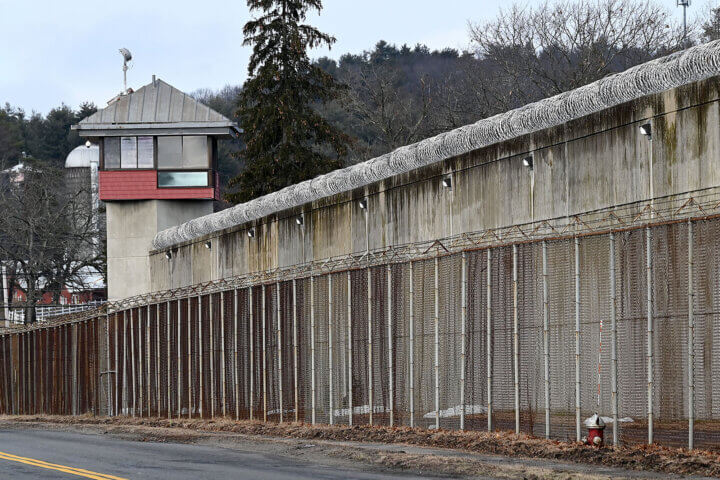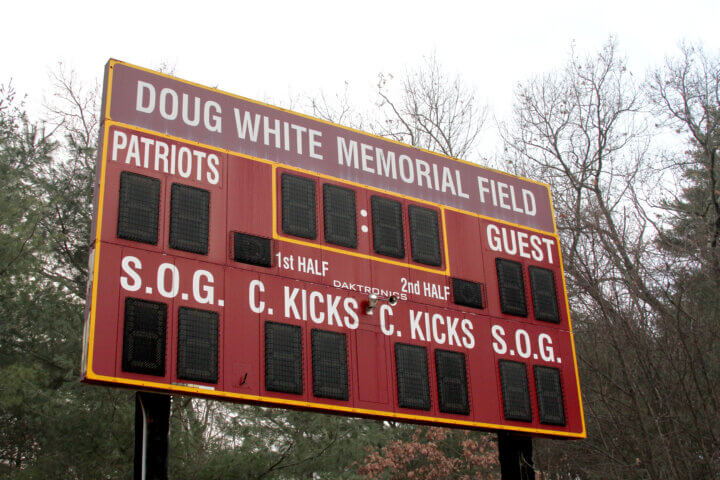Three zoning amendments will be decided at Town Meeting, two designed to increase the number and type of small eateries in Concord and the third to address the dearth of affordable housing units.
Article 33 asks voters to approve an amendment to allow fast food restaurants, not necessarily chains with familiar logos but “our type of fast food restaurant,” according to Planning Board Chair Nathan Bosdet. Drive-through and drive-in fast food places would still be prohibited.
The new amendment revises the 1981 zoning law which outlawed all types of fast food establishments. Language in the new amendment says that there is no evidence that local fast food, or small restaurants such as New London Pizza and others, encourage loitering, noise or smell, three factors used to ban them in 1981.
Also the town has a bylaw banning the sale of containers made with polystyrene and a requirement that site plans must include compliance with the town’s outdoor lighting bylaw.
Bosdet said the current bylaw inhibits small restaurants that add economic vitality to the town.
“We are taking the roadblocks out,” he said.
Chairperson of the Economic Vitality Committee Jennifer Shuenemann hailed the amendment, saying it provides a “vital key” to attracting and serving visitors to town.
She said the added meals tax was a plus, and hoped the amendment would “attract more small restaurants.”
A second article covers food trucks. Article 34 states that food trucks would be permitted by the local health and police departments for up to 52 days a year on private land. For public roads, the Select Board would issue a permit, regulated by the police and health department.
As it stands now, food trucks are not allowed to operate. The amendment in Article 34 permits ice cream trucks to ply public streets. Trucks can park on restaurant property.
“This provides for more variety,” said Planning Board member Linda Miller. “It’s an opportunity for progress in Concord.”
Matt Johnson injected a note of levity into the hearing, asking whether two trucks could open up in his West Concord driveway for a day, then move to his neighbor’s driveway for another day, and so on.
“I wonder what my neighbors would think,” he said.
David Rosenbaum of Concord-Carlisle Neighbors said the addition of food trucks was “excellent.” He approved of the “other opportunities for dining.”
Mary Hartman also thought it was “a great idea,” suggesting that competition among area restaurants “made good economic policy.”
Steve Verrill of the eponymous Verrill Farm said he was “very interested in having a truck.”
The idea of siting the trucks in a parking lot, such as at a school or office park, got traction among those who felt food trucks on local streets would cause traffic tie-ups, and pose a safety issue.
James Nager supported designated areas outlined in the zoning amendment.
Restaurateur Ian Calhoun, proprietor of 80 Thoreau, said he had success with the pop-up Cussers roast beef sandwich stand and would like to bring it back. “A lot can be done in a small space with narrowly focused cuisine,” he said.
Article 35 seeks to add more affordable housing units at different size and price points in mixed use developments, creating homes for workers, seniors and young families. Since 2010, only one project has created apartments over retail space: two market rate units in West Concord.
If the zoning bylaw is approved, commercial/residential developments of 10 units or less will need to set aside 10% of the units for affordable housing.
If the project is four units or less, the developer can make a payment in lieu to the Concord Affordable Municipal Housing Trust instead of building an affordable unit. With a five to 10 unit project, if the required number of units includes a fractional unit of .4 or smaller, that fraction can be paid as a payment in lieu instead of building out a complete unit.
Projects with 11 or more residential units will need to include 20% affordable units within the development. Like the smaller projects, if the needed units include a fraction of less than half a unit, the developer can make a payment to the trust instead of building an additional unit. Full units required under the 20% must be included in the project.
If a project with 21 units now requires five affordable units, the new formula would require building four affordable units and making a payment in lieu on .2 of a unit, said Johnson.
He questioned why the town would create a cliff where smaller projects must hit a 10% affordability rate and larger projects need to set aside 20% of the units as affordable.
“The cliff issue may potentially be there but shouldn’t let us stop this,” said Rich Feeley, president of the Concord Housing Foundation. “We need sources for affordable housing that don’t come out of the property taxes,” he added.
“I think this is smart,” he continued.
Others questioned some of the wording in the proposed amendment.
The Planning Board will seek clarification before Town Meeting, said member Sue Felshin who presented the article during the hearing.
“If the amendment passes but changes are needed, the Planning Board can get more input and bring another amendment to Town Meeting the following year,” wrote Town Planner Elizabeth Hughes in a follow-up email.
All three amendments require a 2/3 vote according to town counsel.






